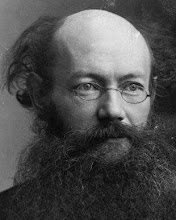It seems that a few days ago, the Menifee Union School District in Riverside County, California, removed the Merriam-Webster 10th Collegiate Dictionary from its classrooms. This was done in response to a parental complaint that some entries about sexual activity were too explicit. The news broadcast showed the offending page where the words “oral sex” could be found along with a portion of the definition. (My DVR allowed me to run the story back and hold the picture long enough to check it out.) There were no explicit illustrations or verbal instructions on how to perform the activity. It simply gave the Latinate synonyms, cunnilingus and fellatio. Someone who still wanted to pursue the subject would have to look those up to learn more.
After I’d clicked off the TV, I checked out my own dictionaries. Neither my Merriam-Webster 7th Collegiate nor my Random House Unabridged contained the term “oral sex” although both defined the technical Latinate terms along with their etymology. I then checked out Merriam-Webster on line and discovered that “oral sex” was added to the dictionary in 1973. The words cunnilingus and fellatio, by contrast, date from 1887 and 1893 respectively. (My own dictionaries were published in the mid-1960s.)
I then decided to find out just where this town was, so I Googled the name "Menifee," and was rewarded with numerous sites, official and unofficial, telling me more than I wanted to know about the small, recently-incorporated town that is home to the famous “Sun City” retirement community. The article in Wikipedia seemed quite complete and, as I read down the page, I discovered that the story I had just heard on the evening news had already been incorporated into the Wikipedia article giving a footnote to a story in the Los Angeles Times as the corroborative reference.
Clicking on that reference I discovered it was from that day’s paper. The folks at Wikipedia were certainly on their toes! When I checked the TV news story online it referred to a similar story in the Riverside Press-Enterprise. All the on-line stories at the TV station and the newspapers were followed by comments, mostly decrying the notion of censorship, and suggesting that children should be free to learn and inquire, and that parents should not censor their knowledge but explain the reference in terms appropriate to the child’s level of understanding. The critics also made the “slippery-slope” argument that banning one book would lead to banning more books as more parents found more reasons, sexual, social, racial, or political, to object to their content, until nothing would be left but Dick and Jane. A few defenders of the action suggested that more “age appropriate” material should be provided.
One thing I found remarkable is that Merriam-Webster has had “oral sex” in its dictionaries since 1973. That’s nearly four decades ago. How did the parents of these children avoid finding it themselves at some time in those intervening years?
Some date the current interest in the subject from the time of a very public case of oral sex that was tied in with a presidential impeachment, at which time it was proclaimed, by no less an authority than the occupant of The White House, that oral sex wasn’t really sex after all.
I think the real irony here is that, from what I’ve read about current practices of the young, teen-agers nowadays may well have more personal, practical knowledge of oral sex than their parents. According to some researchers, the youngsters see it as a form of “abstinence” and a way to prevent unwanted pregnancy.
So, is this dictionary suppression the cutting edge of a new wave of censorship? Keeping explicit sexual material out of school libraries is perfectly appropriate. But a dictionary? Dictionaries don’t advocate behavior and they don’t make up things. They just define words. The protesting mother should have asked her child how he or she happened upon the term in the first place: because he heard about it from his school friends, or because she was looking up “oracular” or “orange”?
What is so amazing is not the fact that some protective mommy frets about what her child sees in print, or that some timid school administrator is cowed into pulling the offending dictionary from the classroom, but the fact that it has received such wide coverage in the media. The whole thing seems so silly, but it has struck a nerve somewhere.
Bob Martin

No comments:
Post a Comment